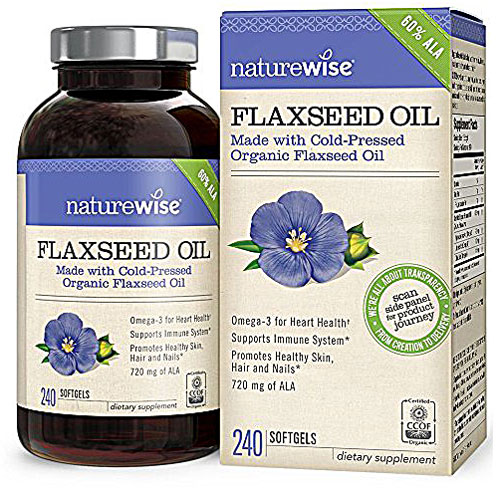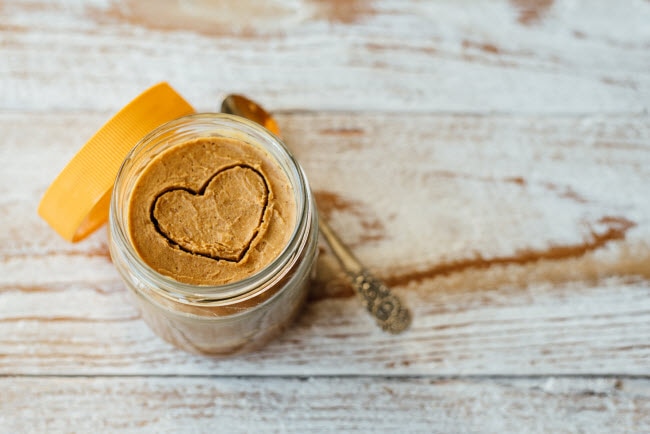When it comes to well-being, one of the most important areas – if not the most important area – to focus on is heart health. After all, not only is the heart responsible for keeping us alive, but its wellness determines how we feel on a daily basis. By supporting heart health through our daily diet and staying active, we can improve our chances of a long, healthy life that’s free of some of the most deadly forms of disease.
Based on decades of research, the American Heart Association recommends a diet low in saturated fats, sodium, dietary cholesterol, red meat and added sugars and rich in fruits, vegetables, whole grains and healthy fats as the best way to support heart health and reduce your risk of coronary artery disease.
Besides following this general recommended diet, there are some specific foods that provide unique benefits to your heart. Make it a goal to eat more of them every day. Your heart will thank you!
1. Barley
One of the most beneficial foods for heart health is barley grain. Barley is higher in fiber and lower in fat and calories than many other grains, and it’s rich in a type of soluble fiber known as beta-glucan fiber. Beta-glucans in cereal fibers such as barley and oats, and the seed psyllium, have been shown to reduce the risk of cardiovascular disease when consistently consumed.
One simple way to incorporate more whole grain barley into your day to life is to add pearled barley to soups instead of using rice or another grain, or you can mix rolled barley into your daily oatmeal for a double dose of heart-healthy fiber. You can also try a mixed grain cereal such as Bob’s Red Mill 7 grain hot cereal, which contains a variety of whole grains including whole grain barley.
2. Oats
No other food has been shown to improve heart health more than the humble oat grain. Oats were approved as the first packaged food in the U.S. to carry a seal that claims it improves heart health when consumed on a daily basis and eaten as part of a diet full of fruits, vegetables and whole grains, and low in sodium, added sugars and saturated fats. The claim applies to a daily intake of 3 grams of soluble fiber from oats and/or barley (because of the heart-healthy beta-glucan fibers they contain which help lower cholesterol and even help with weight loss).
One easy way to add oats to your diet is to eat at least ½ cup of rolled oats or ¼ cup steel cut oats each day. Spice your oats up with salt-free seasonings like cinnamon, ginger, and cardamom and top with blueberries or raspberries for even greater heart health benefits!
3. Apples
There’s no denying that apples make a delicious and convenient snack. And no matter what color apple you choose, every single one provides unique benefits for your heart. All apples contain 4 grams of fiber per fruit, which is one of the reasons they’re so beneficial for heart health. They also provide antioxidants such as vitamin C and quercetin which support a healthy immune system. Apples also contain a special type of fiber known as pectin, which soaks up excess fat and cholesterol and makes it easier for the body to eliminate them.
Chop up some apples up and eat them with raw almonds, top your oatmeal with them or pack them whole in your lunch to ensure you get your daily dose of this heart-healthy fruit!
4. Berries
Berries are one of the most delicious, heart-healthy foods you can eat, and they’re packed with anti-aging benefits, too. Whether you choose blueberries, raspberries, blackberries, strawberries or cranberries, you can rest assured that you’re getting beneficial nutrients in every single bite.
Each variety of berries contributes unique types of fibers, polyphenols and other antioxidants shown to improve heart health. Berries are also some of the most high-fiber, antioxidant-rich foods you can eat.
Aim for a minimum of one cup of berries per day and make sure that you eat different varieties to obtain the greatest health benefits. Some ideas include adding wild blueberries to a smoothie, eating frozen strawberries as a snack or stirring raspberries into your oatmeal.
5. Almonds
Need an easy, portable snack? Almond fit the bill – while also helping your heart at the same time. They’re high in fiber, low in saturated fat and contain more vitamin E than other nuts. Almonds are also free of dietary cholesterol and contain important B vitamins as well as magnesium which helps support healthy blood vessels.
Almonds also have been shown to improve artery function and enhance epithelial function when eaten in accordance with a diet high in fruits, vegetables and whole grains, and low in saturated fats, sodium and added sugars. Be sure to eat raw almonds that contain no salt for the biggest benefits.
Try pairing almonds with a piece of fruit for a healthy snack, or add a few to your daily bowl of oatmeal. Or, use raw almond butter or no-salt-added almond butter in place of butter on a piece of whole grain toast. To keep calories in check, keep your daily servings of nuts to one ounce per day, which is equivalent to about 23 almonds.
6. Bananas
Bananas make a delicious topping for whole grain cereal, and they pair perfectly with peanut butter. They also happen to be among the most beneficial fruits you can eat for heart health. Bananas contain several nutrients, including potassium, magnesium, vitamin B6 and vitamin C, that help lower blood pressure. They also contain 3 grams of fiber and 0 grams of fat per fruit making them a filling, low-calorie treat. They’re also great for improving mood since they’ve been shown to enhance serotonin levels in the body, which also encourages heart health.
Eat bananas with a high-fiber whole grain hot cereal; slice them and stir into whole grain rice with some almonds for a creative, healthy breakfast; add a frozen banana to a smoothie with frozen berries and plant protein; or snack on them with fresh strawberries for a heart-healthy afternoon treat!
7. Flax seeds
Small in size but big in benefits, flax seeds are an incredible food for heart health due to their fatty acid content and specific type of fiber they contain. Flax seeds are high in omega-3 fatty acids (in the form of alpha-linolenic acid) which support healthy arteries, reduce blood pressure, support skin health and even contribute to a healthy mood.
Flax seeds also contain lignans, a type of fiber that helps reduce cholesterol, supports a healthy weight when eaten as part of a diet low in saturated fats and cholesterol and contributes to better blood sugar levels. The high-fiber factor of flax seeds also reduces constipation and enhances colon health, which supports heart health even further.
Add two tablespoons of ground flax seeds to your morning oatmeal or a bowl of quinoa, or add them to a smoothie to add a thickness and extra-filling fiber. You can also add flax seeds to your baked goods to boost fiber content. They may even be used as an egg replacer in some baked goods, lowering the cholesterol content of recipes.
8. Walnuts
All nuts and seeds provide healthy fats that are great for heart health, but walnuts contain more omega-3 fatty acids than any other nut, and plant-based omega-3s have been shown to reduce the risk of coronary artery disease as part of a diet low in saturated fat and cholesterol.
Adding walnuts to a diet as a replacement for saturated fats and foods high in cholesterol may even help with weight loss. Walnuts are higher in fats than other nuts, such as almonds and cashews, however, so portions should still be kept in check for a healthy weight.
Add 2 two tablespoons of raw walnuts to any recipe you like; they go great in sweet and savory dishes and can be used as a replacement to meat in many recipes, such as stuffed mushrooms, stuffing or plant-based burgers. Or, just toss a tablespoon in your favorite smoothie, sprinkle on some fruit as a healthy dessert, or mix them into your breakfast cereal recipe for an easy way to include them in your routine.
9. Green vegetables
Everyone knows that fruits and vegetables are beneficial for heart health, but green vegetables contain special benefits that make them worth not missing on a daily basis. Whether you choose spinach, kale, collards, arugula, asparagus or broccoli, you’re doing your heart some good!
Green vegetables contain higher combined amounts of phytonutrients, fiber, calcium, magnesium, iron and vitamins A, C and K than other types of vegetables. They also support colon health, which is important for heart health, and contain both magnesium and calcium, which reduce blood pressure levels. The high fiber content of greens also supports healthy blood sugar levels and can help bulk up any meal without adding fats or sugars, all while contributing to a more nutrient-dense meal.
For best results, eat three servings of different green vegetables per day. Start out by adding one or two to each meal. Swap in some spinach instead of iceberg lettuce for a healthier lunch salad; add kale to your morning smoothie; stir greens into any soup recipe; or make a savory whole grain dish like brown rice or quinoa with collards, arugula or asparagus for your next dinner.
10. Cocoa powder
Dark chocolate is well known as a heart-healthy treat, but it also can be calorie-rich and all-too-easy to overeat. The good news is, there’s a lower-calorie way to enjoy the benefits of chocolate. Try plain cocoa powder! Cocoa powder is just as beneficial for heart health as whole dark chocolate and is only 10-20 calories per two-tablespoon serving (with zero saturated fat and more fiber).
Cocoa powder supports healthy blood pressure levels which contributes to healthy arteries, and it lowers inflammation associated with heart disease. This is all thanks to beneficial compounds known as flavonoids, which have been shown to improve epithelial function. Keep in mind these benefits apply to plain, unsweetened cocoa powder—not drinking cocoa which has added fats and sugars.
To add cocoa powder to your diet, scoop a tablespoon or two into a smoothie or protein shake; mix a teaspoon into your coffee for a heart-healthy mocha drink; or bake with cocoa powder. You can even use cocoa powder in place of ½ of the flour in just about any baked good recipe – so try making a chocolate banana nut muffin for a fun morning treat or afternoon snack.




